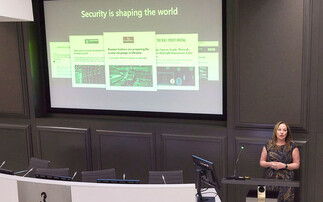Emails, satellite and even fax communications scooped up by French secret services
France has been outed as the latest democratic country to be operating a vast online surveillance apparatus in apparent contravention of the law. Revealed today in Le Monde newspaper in a report...
To continue reading this article...
Join Computing
- Unlimited access to real-time news, analysis and opinion from the technology industry
- Receive important and breaking news in our daily newsletter
- Be the first to hear about our events and awards programmes
- Join live member only interviews with IT leaders at the ‘IT Lounge’; your chance to ask your burning tech questions and have them answered
- Access to the Computing Delta hub providing market intelligence and research
- Receive our members-only newsletter with exclusive opinion pieces from senior IT Leaders


















